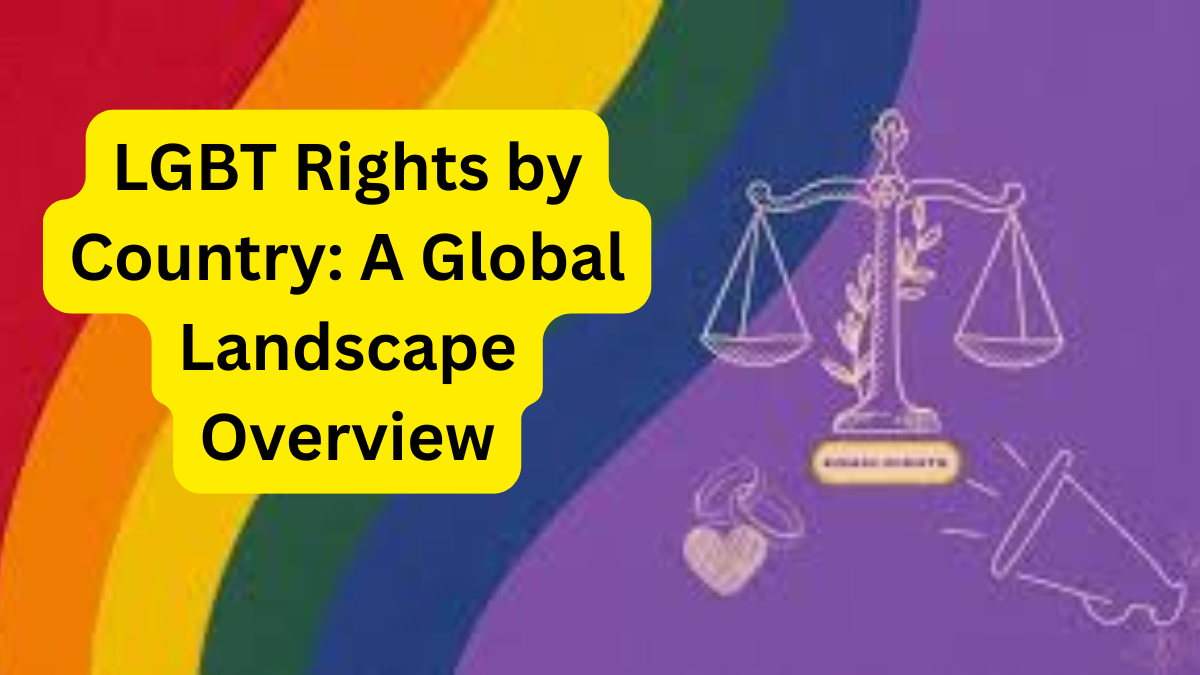The state of LGBT rights by country varies dramatically across the globe, ranging from full legal equality and protection to criminalization and severe punishment. There is no single global standard for LGBTQ+ rights; instead, a complex patchwork of laws defines the experience of individuals based on their geographic location. This article provides a clear overview of this global landscape, highlighting progressive leaders, criminalizing nations, and the key rights that define legal status. Understanding these disparities is crucial for advocacy, travel, and global awareness.
Global Leaders in LGBTQ+ Rights
Several nations are consistently recognized for their comprehensive legal protections and inclusive societies for LGBTQ+ people. These countries typically offer broad anti-discrimination laws, recognition of same-sex relationships, and protections for transgender identities.
Key Protections in Progressive Nations:
- Marriage Equality: Legal recognition of same-sex marriage.
- Anti-Discrimination Laws: Comprehensive laws prohibiting discrimination in employment, housing, and public services.
- Gender Identity Rights: Self-identification laws allowing individuals to change their legal gender without medical intervention.
- Hate Crime Legislation: Enhanced penalties for crimes motivated by sexual orientation or gender identity bias.
Examples of Leading Countries: Canada, Malta, Portugal, the Netherlands, and New Zealand frequently top global indexes like the ILGA-Europe Rainbow Index for their extensive legal frameworks.
Countries Where Homosexuality is Criminalized
Tragically, consensual same-sex sexual acts remain illegal in numerous countries. The severity of punishment varies widely, reflecting deep cultural, religious, and political divisions.
Regions with Widespread Criminalization:
- Parts of Africa: Over 30 African nations have laws criminalizing homosexuality, with penalties ranging from imprisonment to the death penalty.
- Parts of Asia: Several countries in Asia, particularly in the Middle East and South Asia, maintain colonial-era or religiously-based sodomy laws.
- The Caribbean: A number of Caribbean nations still enforce anti-LGBT laws inherited from British colonial rule.
Severe Penalties: A handful of countries, including Iran, Saudi Arabia, and Yemen, impose the death penalty for same-sex sexual acts. It is critical to research specific destinations thoroughly.
How to Research LGBT Rights for a Specific Country
Whether you are traveling, relocating, or conducting research, follow these steps to get accurate, up-to-date information on a nation’s LGBTQ+ legal landscape.
- Consult Major Human Rights Organizations: Start with the annual reports from ILGA World (International Lesbian, Gay, Bisexual, Trans and Intersex Association) and Human Rights Watch. These are the most authoritative sources.
- Check Government Travel Advisories: Reputable government sites like the U.S. State Department or the UK Foreign Office provide travel advisories that often include sections on local LGBT rights and safety conditions.
- Review LGBTQ+ Travel Guides: Websites like Equaldex and Spartacus Gay Travel Index crowdsource and update information on laws and social attitudes.
- Connect with Local LGBTQ+ Organizations: Search for in-country advocacy groups. Their websites and social media often provide the most nuanced view of the on-the-ground reality beyond just the laws.
- Verify Dates and Legislation: Laws change frequently. Always check the date of any article you read and look for primary sources, such as official government gazettes or statements, to confirm legal status.
Key Rights to Evaluate in Each Country
When assessing the state of LGBT rights by country, experts typically evaluate a core set of legal benchmarks. The status of these rights can vary independently within a single nation.
| Right | Progressive Example | Restrictive Example |
|---|---|---|
| Same-Sex Marriage | Legal (e.g., Germany) | Not recognized, constitutionally banned (e.g., Poland) |
| Anti-Discrimination Laws | Comprehensive protections in all areas (e.g., Sweden) | No protections, or only in employment (e.g., Russia) |
| Gender Identity Recognition | Self-ID based on declaration (e.g., Argentina) | Medical intervention required, or not allowed (e.g., Japan) |
| Criminalization of Same-Sex Acts | Legal for decades (e.g., Australia) | Illegal, with prison sentences (e.g., Uganda) |
Frequently Asked Questions (FAQ)
Q: Which country has the best LGBT rights in the world?
A: While rankings change, countries like Canada, Malta, and Portugal consistently score highly due to their comprehensive anti-discrimination laws, easy legal gender recognition, and full marriage equality.
Q: How many countries have legalized same-sex marriage?
A: As of 2024, over 35 countries have legalized same-sex marriage nationwide. The number continues to grow, with recent additions including Greece and Estonia.
Q: Where is it illegal to be gay?
A: Consensual same-sex sexual acts are illegal in approximately 60+ countries. The exact number fluctuates as laws are challenged and changed.
Q: Why is there such a global divide in LGBT rights?
A: The divide stems from complex factors including cultural and religious traditions, the legacy of colonial-era laws, political movements, and the strength of local LGBTQ+ activism.
Q: How reliable are maps showing LGBT rights?
A: They are a good starting point for a visual overview, but they can quickly become outdated. Always use them in conjunction with the latest reports from ILGA World or Human Rights Watch for verification.
Stay Informed and Take Action
The global landscape for LGBT rights by country is constantly evolving. To stay updated and support progress, engage with the work of international advocacy organizations. Your awareness and support can contribute to a more equal world.
Contact & Resources:
- ILGA World: The most comprehensive source for global LGBT rights data. https://ilga.org
- Human Rights Campaign (Global Work): https://www.hrc.org/resources/international
- Human Rights Watch (LGBT Rights Section): https://www.hrw.org/topic/lgbt-rights
#LGBTRights #HumanRights #Equality #LoveIsLove #TravelSafe #GlobalEquality
